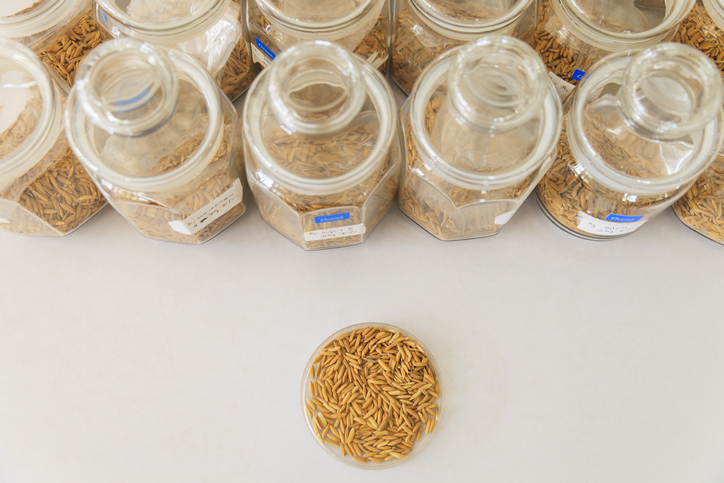
CRISPR-Cas9 Used to Increase Rice Resistance to Abiotic Stresses
March 4, 2020| |
Researchers from the Chinese Academy of Sciences reported that loss of rice PARAQUAT TOLERANCE 3 confers improved resistance to abiotic stresses and boosts grain yield. Their findings are published in Cold Spring Harbor Laboratory's bioRXiv.
Plants have evolved sophisticated and efficient mechanisms to cope with environmental stress. To balance the response to growth and stress response, plants have an efficient mechanism to turn off the activated stress responses when the stress level is low. In a previous study, it was revealed that such off-switch mechanism is conferred by Arabidopsis PARAQUAT TOLERANCE 3 (PQT3), when knocked out, resistance to abiotic stress is improved. To verify if rice homolog OsPQT3 is functionally conserved, CRISPR-Cas9 was used to generate three knockout mutants.
Results showed that the OsPQT3 knockout mutants (ospqt3) exhibited improved resistance to oxidative and salt stress. Furthermore, the mutants showed better agronomic performance with improved yield in greenhouse and field conditions, compared with the wild type under salt stress.
Based on the results, PQT3 locus could be a potential for crop improvement with improved stress resistance using gene editing technology.
Read more results in bioRXiv.
| |
You might also like:
Biotech Updates is a weekly newsletter of ISAAA, a not-for-profit organization. It is distributed for free to over 22,000 subscribers worldwide to inform them about the key developments in biosciences, especially in biotechnology. Your support will help us in our mission to feed the world with knowledge. You can help by donating as little as $10.
-
See more articles:
-
News from Around the World
- Global Study Reveals Next-Gen Consumers and Farmers Share Hopes for Future of Food and Farming
- Bioengineered Late Blight Resistant Potato to Benefit 300,000 Smallholder Farmers in Uganda
- Give Us GMOs as We Wait for Biosafety Law-Uganda's Local Government Officials
- Agri-biotech Information Resources Now Available in Filipino, Cebuano, and Ilocano
- South Australian Government Stands By Decision to Allow GM Crops
- ISAAA and SEARCA Continue 20-Year Commitment for Agri-Biotech in Southeast Asia
- Two GM Soybeans to Stay in the Market After EFSA Re-Evaluation
- Gene for Stem Rust Resistance in Wheat Solves Decades-Old Genomic Mystery
-
Plant
- Heterotrimeric G Protein Involved in Regulating Multiple Agronomic Traits in Rice
- CRISPR-Cas9 Used to Increase Rice Resistance to Abiotic Stresses
-
Read the latest: - Biotech Updates (February 18, 2026)
- Gene Editing Supplement (January 28, 2026)
- Gene Drive Supplement (February 22, 2023)
-
Subscribe to BU: - Share
- Tweet

